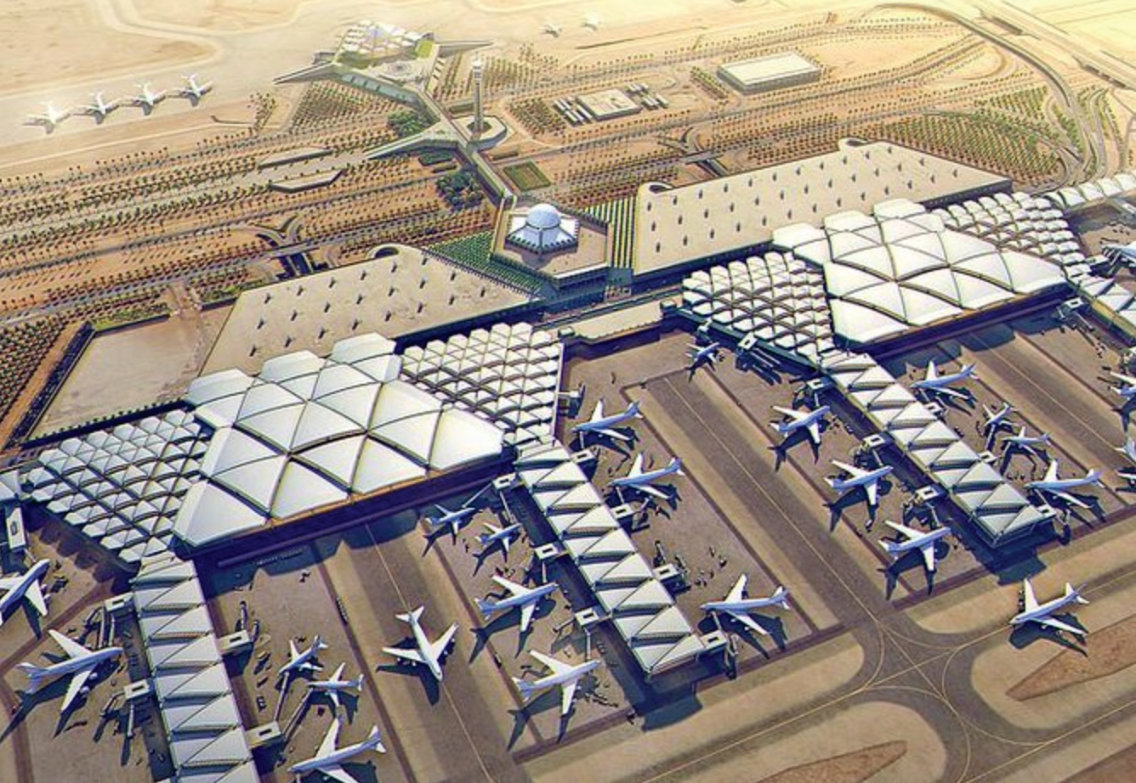RIYADH: Transport, tourism and logistics are set to help the Gulf Cooperation Council region secure gross domestic product growth far above the lobal average, economists have told Arab News.
Experts believe that a focus on non-oil trade by GCC governments is helping countries display economic resilience in the face of global disruptions, such as the conflict in Gaza.
At the end of 2023, a report commissioned by the Institute of Chartered Accountants of England and Wales and compiled by Oxford Economics, forecast 3.2 percent GDP growth for GCC countries in 2024, compared to the 2.1 percent predicted across the world.
Since that report was published, the Israel-Hamas war has continued, as have attacks by Houthi rebels on ships in the Red Sea.
This prompted the OECD to strike a warning in February that while it believes global GDP growth will hit 3 percent in 2025 — with Saudi Arabia forecast to see an expansion of 4.2 percent — there are still choppy economic waters ahead.
“Further upside surprises in inflation could trigger sharp corrections in financial asset prices as markets price in that policy rates may be higher for longer periods of time,” said the report.
Despite these concerns, the wave of economic diversification activities that have swept across the GCC in recent years has placed the region on a stable footing.
The most recent Riyad Bank Saudi Arabia Purchasing Managers’ Index report by S&P Global showed the Kingdom’s non-oil economy is exhibiting improved growth, with business activity accelerating at the fastest rate in five months.
The PMI rose to 57.2 in February — well above the 50-point neutral mark that separates expansion from contraction — marking a notable improvement from a two-year low in January.
This signaled a significant improvement in the operating conditions of the non-oil private sector.

The Gulf is benefiting from investments that have been made over time.
Nasser Saidi, former Lebanese economy minister and founder of Nasser Saidi & Associates
Speaking before the latest PMI report, Nasser Saidi, former Lebanese economy and trade minister and founder of Nasser Saidi & Associates told Arab News: “The Gulf is benefiting from investments that have been made over time.”
He said: “I think one of the critical sectors is transport and logistics,” further stating how “many countries don’t have the airports, transport and facilities that the Gulf has developed, particularly the UAE, Qatar, and increasingly now Saudi Arabia and to a lesser extent Oman.”
Saidi continued: “As a result of it, tourism has developed very rapidly, and when you also open up the economy to tourist visas, facilities to establish businesses, and particularly you deal with COVID-19 very effectively, and you open up when the rest of the world was closed — the combination of these factors delivers the growth that we are witnessing now.”
The economist believes that one of the undervalued aspects that contributed to non-oil growth is the fact that GCC health systems performed very well during COVID-19.
Adel Afiouni, Lebanon’s former investments and technology minister and now a partner and head of Europe and Middle East at finance platform Exos, echoed Saidi’s belief that tourism is driving economic diversification in the region.
Describing the sector as offering a “huge opportunity” for growth, he told Arab News that Abu Dhabi and Saudi Arabia can become global destinations akin to Dubai.
“The increasing diversity of the offering, the quality of the hospitality industry and the natural beauty in so many places are turning previously untapped touristic destinations into a destination of choice, and I believe the potential for growth in this sector is tremendous,” he said.

Another area identified by Afiouni as propelling GCC economies forward is financial services, thanks to “the large pool of capital available in the region within sovereign entities and with private investors and the fact that the region remains one of the largest exporters of capital to the world and a strategic focus for all global institutions.”
Afiouni highlighted the fast growth of wealth in the GCC “especially among entrepreneurs and businessmen in the region, and the development of active regional capital and private markets.”
Additionally, financial services are being bolstered by the large number of ambitious projects planned for the next several decades.
“These will require substantial investments and therefore more needs for FDIs (foreign direct investments) and global capital markets,” he said.
Technology is also an area of expansion, with the political and business leadership across the GCC countries exerting a great deal of effort and capital to attract talent and develop entrepreneurship, alongside creating hubs for technology, innovation and for start-ups and business-friendly ecosystems.
“Business hubs such as DIFC (Dubai International Financial Centre) and Abu Dhabi Global Market have now been operating for a while and are on the radar screen of every entrepreneur as a potential destination where businesses can be established and can thrive and progressive policies and incentives across the region are building a tech ecosystem that can compete with every major global hub,” he adds.
Saidi believes that the other big story for non-oil sector growth is the investment in renewable energy in the region.
“Despite the odds, these are the countries that are investing the most and the fastest in renewable energy because they have the advantage of solar power,” he told Arab News, adding: “They’re looking at this as a new opportunity of being able to go green and particularly (with) renewable energy, things like district cooling, things like a whole number of climate tech industries.”
The economist said: “Desalination is a perfect one. The combination of these factors in addition to the further opening of the economies with free trade agreements are fostering growth.”
















